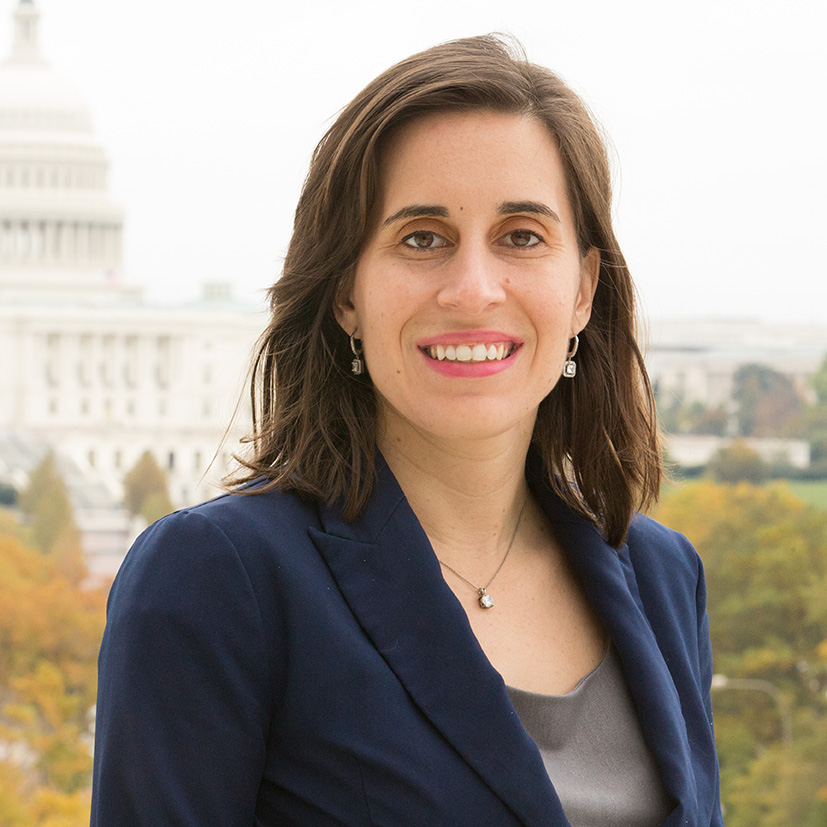
By Ilana Ostrin, BJC Associate Director of Communications
As a child, I remember learning about hate groups such as the Nazis in Germany and the Ku Klux Klan in the United States. I’d run to my parents’ room at night, fearful and in tears, due to dreams that men in white robes or soldiers marching to the praises of Hitler were coming to get my family.
My family is Jewish, and my parents — raised in the shadow of the Holocaust — assured me that my fears were naught. They assured me that such things don’t happen anymore, especially in America, the land of the free. We were safe, or so we thought.
Still, our synagogue always had a team of security guards, and our worship services were often flanked with long lines due to various safety checks. My grandparents requested that my parents give my brother a name other than Ya’akov (“Jacob”) so he could choose when to safely disclose his Jewish identity, rather than have it assumed by anti-Semites.
So how safe were were we really? Was it an illusion or an abundance of caution? Or was it that we knew anti-Semitism lay in the heart of many, and we merely hoped and prayed that — with the help and actions of others — we could remain safe for another day?
In recent days — and and really, since the lead up to the 2016 election – I’ve wondered how my parents would answer my question or quell my fears had I come to them in our current climate. Safety is no longer just an illusion or willful denial – it’s simply not a reality for many.
The shooting at the Tree of Life Synagogue in Pittsburgh that took the lives of 11 people is a solemn reminder that terrible, hateful things do happen in America, to many religious and racial minorities. But these acts of hate shouldn’t merely be accepted as a fact of life or considered a one-time variable. In the Book of Job, it is said that: “the Lord gave, and the Lord hath taken away.” Whatever god you pray to, I hope we can all agree that any god could have never envisioned the lives of those peacefully practicing their faith would be taken away so cruelly, in a house of worship, devoted to His prayer.
Thankfully, organizations like the BJC are active in fighting hate and urging religious equality. In the days after the Pittsburgh shooting, I found myself wholly grateful to be working for the BJC. In witnessing the sincerity of the BJC staff in their grief, anger and bewilderment at how religion could be used as a false cover for such hatred, I also saw the sincerity of BJC’s response. Despite the fact that staff was furious, upset and shaken, not one BJC member hesitated to earnestly act, respond and help the BJC’s long-time friends and coalition partners — Jewish or otherwise.
Had I not been working with and for the BJC during this time, I think my despair over this tragedy would have been even more harsh and severe. After all, Pittsburgh is only a few hours’ drive from the BJC’s office in Washington, D.C. When a tragedy hits so close to home, both physically and emotionally, it is always felt more. I felt the weight of that terrible Saturday instantly. I pulled up Twitter and saw that “Pittsburgh Synagogue” was trending. Without even seeing any news reports or headlines, I knew that something terrible had happened.
But, because I got to stand alongside colleagues who are true to their God-given calling of fighting for religious liberty for all, I was filled with hope and encouragement from the BJC and other interfaith partners. This was where I was meant to be during this time – joined by those filled with hope and responsibility, rather than feeling fearful and alone in an America where some citizens feel justified in turning a blind eye to the founding principle of religious liberty.
Many Christian Americans enjoy more privilege than Americans in religious minorities. The BJC uses its privilege to enhance the equality of religious minorities. Some may find it odd that as a Jew, I work for a Christian organization. But to me, it was never odd. As the organization ramps up its interfaith work in new ways – through finding new interfaith partnerships and outreach opportunities, for instance – my own community has begun to feel BJC’s support and love. The BJC has long been a leader in Washington in working in partnership with others, despite theological differences.
Let us pray together that perhaps the future will be just and safe for all.
This article originally appeared in the November/December 2018 issue of Report from the Capital. To view the PDF online, click here.





